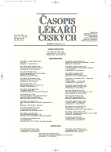Smoke-free New Zealand 2025 – utopia or a model?
Authors:
Eva Králíková
Authors‘ workplace:
Ústav hygieny a epidemiologie 1. LF UK a VFN a Centrum pro závislé na tabáku III. interní kliniky – kliniky endokrinologie a metabolismu 1. LF UK a VFN, Praha
1
Published in:
Čas. Lék. čes. 2012; 151: 257-258
Category:
Special Articles
Overview
New Zealand politicians are aware of the devastating economic and health impact of smoking in their country. The prevalence of that dependence is in New Zealand population aged 15 to 64 years about 20%, but only 4% of the population are “happy” smokers. Therefore, the majority of the population, including smokers, should support plan of gradual effective steps, leading in 2025 to “smoke-free” New Zealand with smoking prevalence in the population below 5%. In the same age group, according to the National Institute of Public Health, the Czech smoking prevalence has remained about 30% for almost ten years and no effective tobacco control legislation is in sight.
Key words:
New Zealand smoke-free, tobacco control.
Labels
Addictology Allergology and clinical immunology Angiology Audiology Clinical biochemistry Dermatology & STDs Paediatric gastroenterology Paediatric surgery Paediatric cardiology Paediatric neurology Paediatric ENT Paediatric psychiatry Paediatric rheumatology Diabetology Pharmacy Vascular surgery Pain management Dental HygienistArticle was published in
Journal of Czech Physicians

- Advances in the Treatment of Myasthenia Gravis on the Horizon
- Possibilities of Using Metamizole in the Treatment of Acute Primary Headaches
- Metamizole at a Glance and in Practice – Effective Non-Opioid Analgesic for All Ages
- Metamizole vs. Tramadol in Postoperative Analgesia
- Spasmolytic Effect of Metamizole
-
All articles in this issue
- Long-term therapy of idiopathic inflammatory bowel disease
- Addition of statins into the public water supply? Risks of side effects and low cholesterol levels
- Physician and freedom of conscience
- Smoke-free New Zealand 2025 – utopia or a model?
- Czech paediatric cardiac surgery – history and presence
- Caecal ligation and puncture in the minipig – a model of sepsis induction
- Caecal ligation and puncture in the minipig – a model of sepsis induction
- Journal of Czech Physicians
- Journal archive
- Current issue
- About the journal
Most read in this issue
- Czech paediatric cardiac surgery – history and presence
- Addition of statins into the public water supply? Risks of side effects and low cholesterol levels
- Long-term therapy of idiopathic inflammatory bowel disease
- Physician and freedom of conscience
